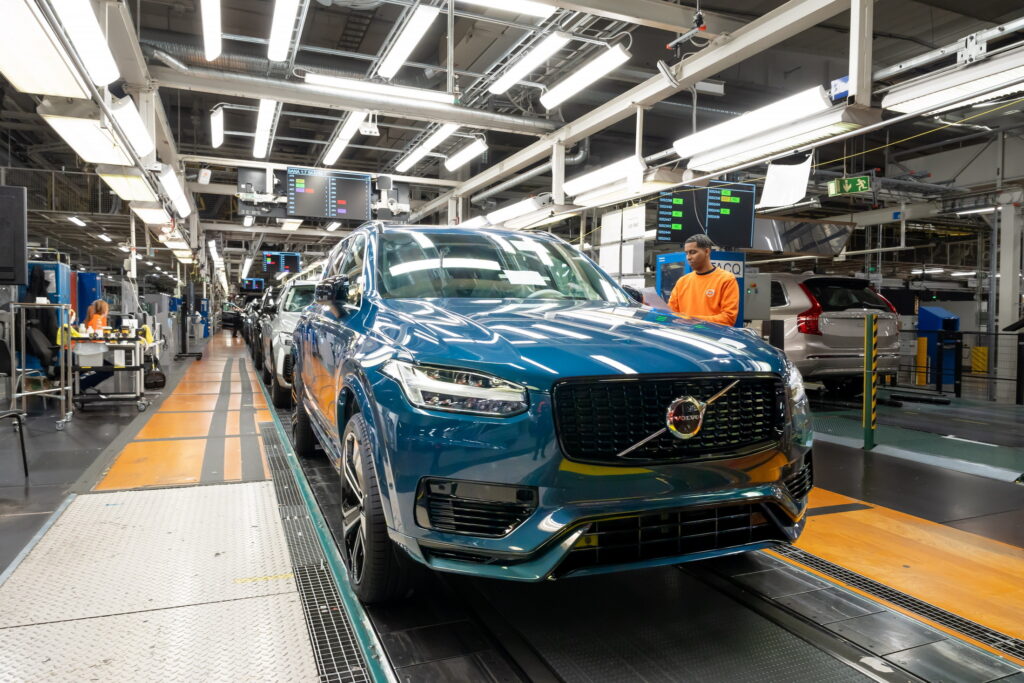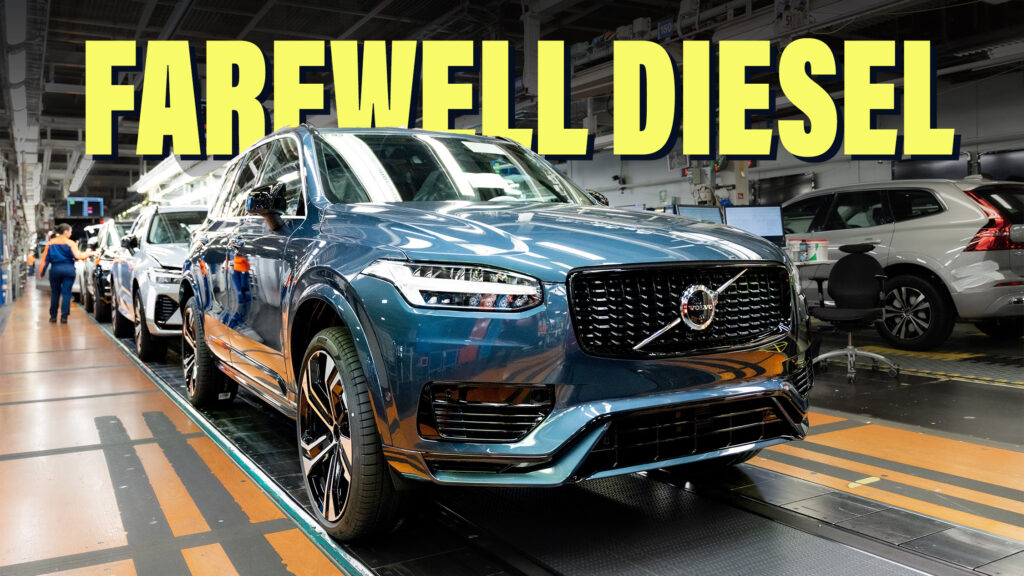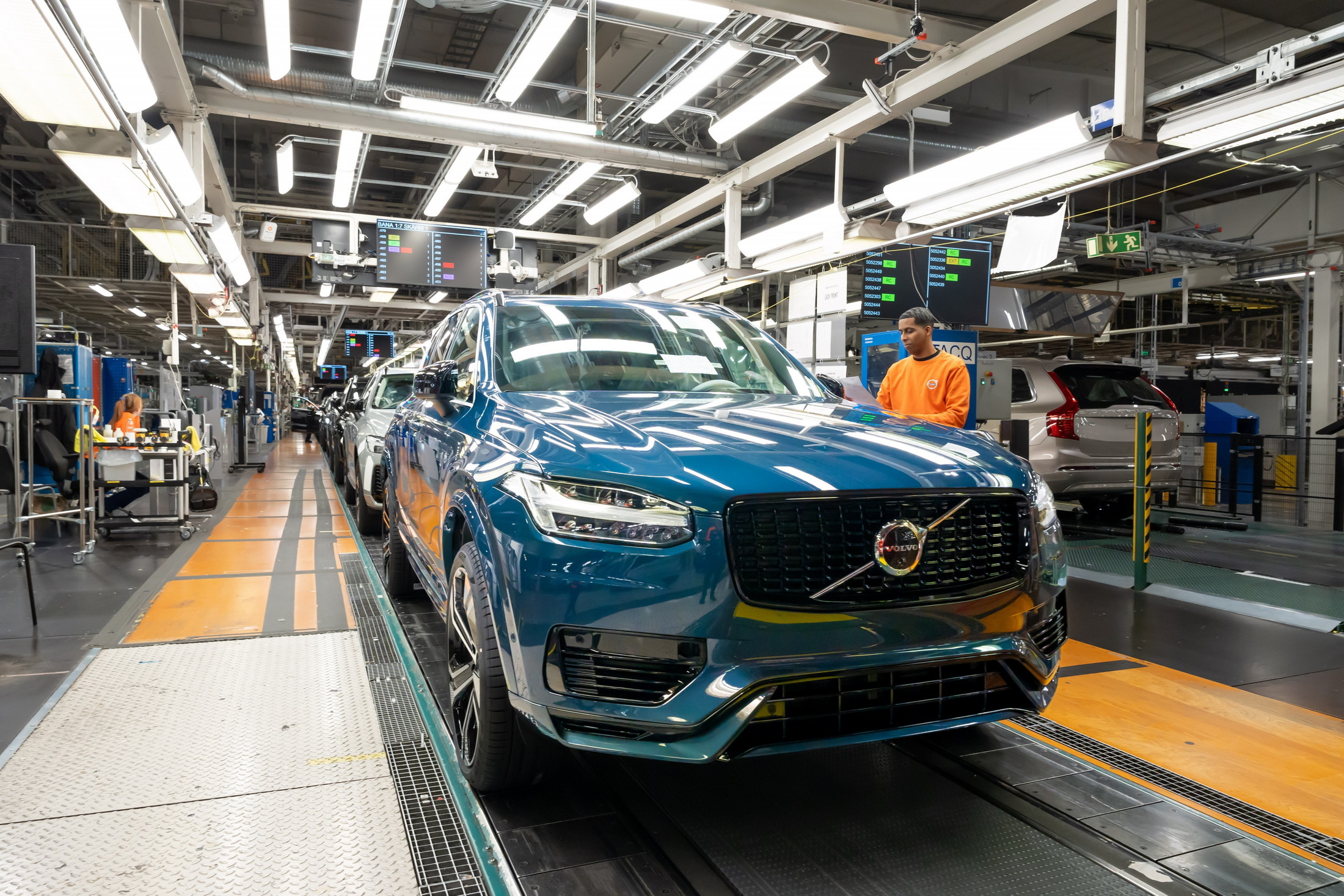- After 45 years of production and millions of sales, Volvo has officially stopped making diesel-powered vehicles.
- The last diesel Volvo to ever be produced, an XC90 SUV, will be displayed at the company museum in Gothenburg.
- The Dieselgate scandal and rising popularity of EVs prompted Volvo to focus on electrification. It aims to be an all-electric car company with net-zero emissions by 2040.
After 45 years, and millions of sales, Volvo has ended its relationship with diesel. The company announced that it would cease production of the powertrain type last year at Climate Week NYC, and this month, it has made good on its promise.
In February, the last diesel-powered Volvo V60 rolled off the line in Ghent, Belgium. This month, the final XC90 with a diesel engine — and, by extension, the last Volvo with a diesel engine — left the factory in Torslanda, Sweden.
Read: Volvo’s Combustion Cars Will Get One Last Redesign Before Brand Goes All EVs
The SUV is now en route to the World of Volvo, the company’s museum in Gothenburg, where it will serve as a display piece, symbolizing the end of the diesel era. This period began 45 years ago, in 1979, when the automaker introduced its first diesel vehicle into production.
The Volvo 244 GL D6, powered by the world’s first six-cylinder diesel engine for passenger cars, came at a time when, even in Europe, diesels were only popular among taxi drivers and long-haul drivers. However, the popularity of the technology would eventually take off, and diesel vehicles have played an important role in Volvo’s lineup for years.

Between 2012 and 2016, vehicles equipped with the engine type accounted for half of its global sales. Since 1991 (the farthest Volvo’s records go back) it has made more than 9 million vehicles with diesel engines.
However, the technology started to fall out of favor in 2015, in the wake of the Dieselgate scandal. Although VW was the face of the controversy, a large number of European automakers were accused of using devices to cheat on emissions tests, and the reverberations continue to be felt today.
That shifted the technology’s image from environmentally friendly to dirty almost overnight. Along with the growing popularity of Tesla vehicles, the scandal helped push automakers and regulators towards electric powertrains.
Volvo was among the automakers that decided to shift its focus to electrification. In 2023, its EV sales increased 70 percent, and its global electric market share increased by 34 percent. Ultimately, it says it hopes to become an EV only company, and achieve net-zero emission by 2040.









